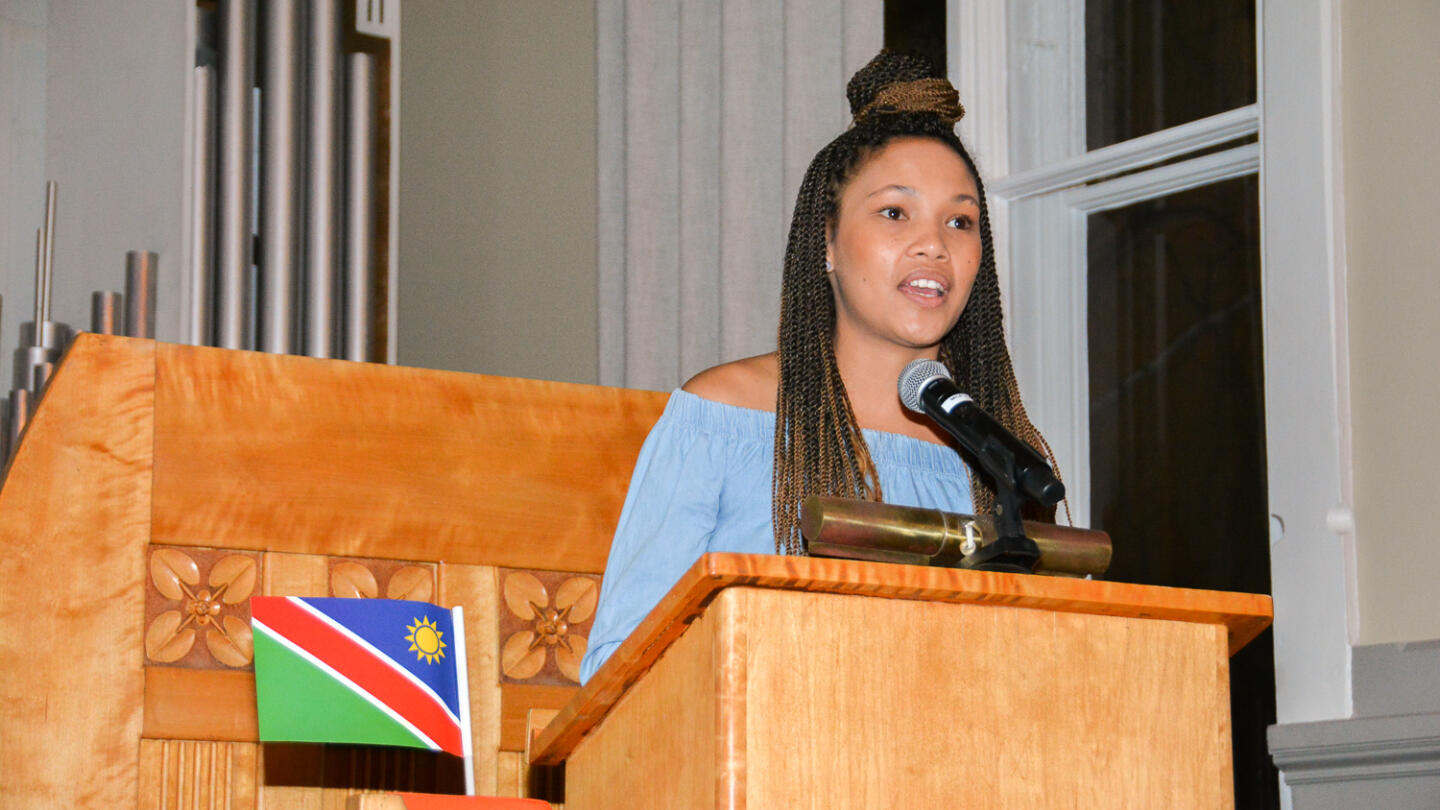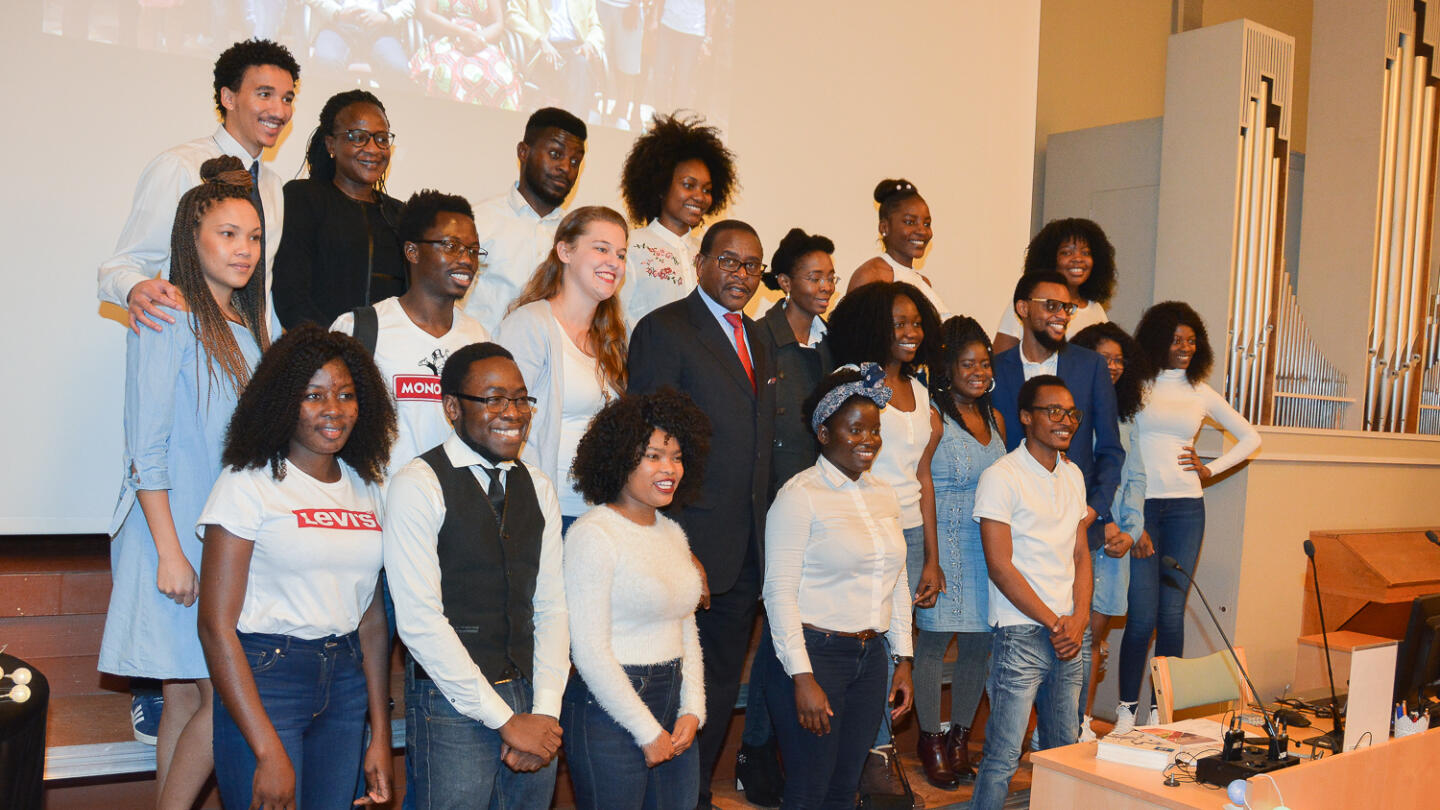Namibian Teacher Students in Rauma Finalise Their Studies in Namibia — Bachelor’s Degrees Will Be Completed Next Autumn
The 24 Namibian teacher students at the Department of Teacher Education in Rauma will return to their home country at the beginning of December to finalise their studies in Namibia. Before completing their degree, the students still have to carry out a three-month teaching practice in their home country. The Department of Teacher Training at the Faculty of Education of the University of Turku in Rauma is responsible also for the finalising of the education.
Having carried out teacher studies for the past two years at the Department of Teacher Education in Rauma, Adelaide Hartung considers the Finnish and Namibian curricula very similar, but their practical implementations differ from each other.
– The education system in Finland is very student-centred as to the Namibian system that is teacher-centred. Therefore, we have been most impressed by the thought that in every decision we make as teachers, the main focus should always be on the students, says Hartung.
According to Hartung, another important feature of the Finnish system is that it is not up to the government or Ministry of Education alone to decide what the curriculum should consist of, but it is based on the knowledge of the people who have first-hand experience with the education system, i.e. the teachers and community as a whole.
The student days spent in Finland have given Hartung also personal motivation for her future work.
– To be honest, I never wanted to be a teacher, as it is not seen as a respected profession in Namibia, but after my experience in Finland, I have come to realise that we need to invest in our young people, and I can be a part of the team that will make this possible. With everything I have learned and experienced, I now have the goal of placing more emphasis on non-promotional subjects, because not every child will grow up to become a mathematician or a scientist, some may grow up to become the next Picasso or Beethoven.
Realising Tailored Degree Programme in Finland Significant Opening in Finnish Transnational Education and Expertise
Over two years ago, the national Namibia Students Financial Assistance Fund (NSFAF) bought Bachelor’s degree level teacher education for a group of Namibian students. The decision was a new opening for Finnish transnational education that offered buying an entire degree so that teaching is mostly carried out in Finland.
According to the leader of the programme Päivi Granö, the Finnish teacher training curriculum has been followed in the Namibian education, but it has been tailored slightly to meet the needs of the buyer.
– As the students only spent two years in Finland, teaching was very intensive, and the summer months were utilised, too. The students adopted the Finnish school culture and new teaching methods quickly. The carried out their teaching practices at the Rauman normaalikoulu teacher training school, and in preschools and schools in Rauma, says Granö from the Department of Teacher Education at the University of Turku.
Granö praises the steady progress of the students. The students have stayed in Rauma for two years and will now return to their home country to complete their Bachelor’s theses.
– The future teachers will complete their final teaching practices in Namibia in the local schools. All students have already agreed on teaching practices in Windhoek in collaboration with the local Ministry of Education and the capital’s chief education officer. A lecturer at Rauman normaalikoulu teacher training school will participate in the teaching practice guidance in Windhoek, Granö tells about the future plans.
According to Granö, the experience has been highly interesting and positive for the teaching personnel and everyone on the Rauma campus.
– Conveying the content of teaching in another language and over cultural differences has, naturally, required a lot of effort from the teaching personnel, but, at the same time, the work has been highly rewarding and educational. Realising this degree programme has offered us a unique experience, and by evaluating it we can develop our future transnational education activities, says Granö.
Photos: Asko Tanhuanpää

